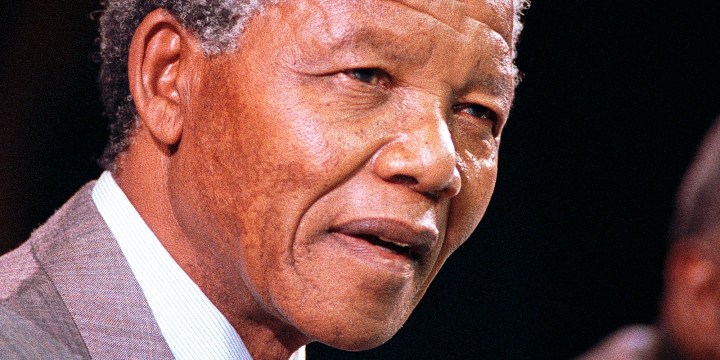INTERNATIONAL INFLUENCE OP-ED
Nelson Mandela’s global reach made him the ultimate symbol of individual soft power

Soft power actors use non-coercive means to achieve their objectives in their relations with other actors. Mandela’s larger-than-life character and his status as a symbol of emancipation, peaceful transformation and reconciliation generated significant soft power.
In 2009, the UN General Assembly declared 18 July as “Nelson Mandela International Day” in recognition of Madiba’s contribution to peace and freedom across the world as well as his dedication to the service of humanity in the areas of human rights promotion, reconciliation, conflict resolution, race relations, and social justice.
In marking this year’s celebration, UN Secretary-General António Guterres said that “Nelson Mandela was a colossus of courage and conviction. A leader of immense achievement and extraordinary humanity. A giant of our times, whose legacy we best honour through action: action to expel the poison of racism, discrimination and hate; action to extinguish the legacies of colonialism; and action to promote equality, human rights and above all, justice… So, as we commemorate Nelson Mandela’s life and legacy, let us be animated by his spirit of humanity, dignity and justice … And let us take action to build a better world.”
The commemoration of Mandela thus served as a reminder of the legacy of the ultimate soft power individual.
Soft power actors use non-coercive means to achieve their objectives in their relations with other actors. This implies that attraction in lieu of coercion is the language of soft power. Given their primacy in international politics, soft power is often associated with state actors.
But the increasing influence of non-state actors dictates a need to review this approach. States’ soft power resources largely stem from philosophies, political values, culture and foreign policies. The soft power resources of non-state actors – including international organisations, NGOs, MNCs, terrorist groups and individuals – comprise multilateralism, norms entrepreneurship, branding, ideology and personality, respectively.
Individuals’ soft power, particularly that of presidents, is critical to a state’s overall soft power portfolio. For instance, the United States’ soft power experienced a rollercoaster ride from George W Bush to Barack Obama and Donald Trump. It took the multilateral posture of the Obama administration to heal the country’s image which plummeted during Bush’s presidency due to his unilateralism and the war on terrorism that engendered global anti-Americanism.
However, this soft power gain was squandered under Trump’s administration.
Post-apartheid South Africa has arguably produced two soft power presidents – Nelson Mandela and Thabo Mbeki. Mandela epitomises the struggle against apartheid, post-apartheid reconciliation and the notion of “the rainbow nation”. Coupled with his personality and international clout, this generated significant soft power for Mandela and South Africa.
Mandela’s larger-than-life character not only stemmed from his charisma, but also his status as a symbol of emancipation, peaceful transformation, and reconciliation. While his fight against the apartheid regime landed him in prison for close to three decades, his conviction that reconciliation was the only route to move the new South Africa forward prevented a possible racial Armageddon and accorded him instant global accolades.
Template for truth and reconciliation
South Africa thus serves as an admirable template for truth and reconciliation efforts and constitutional order. Indeed, major actors in South Africa’s transition to democracy including Desmond Tutu, Pius Langa and Richard Goldstone promoted the country’s experience across the globe.
Tutu advanced the South African Truth and Reconciliation Commission (TRC) model in tens of states; Goldstone offered his experience as a prosecutor to the international tribunals for Rwanda and Yugoslavia; and Langa played an important role in constitutional review commissions in Rwanda, Tanzania, Zimbabwe, and Sri Lanka.
Mandela’s moral authority was significant in South Africa’s pursuit of its foreign policy objectives, especially in the areas of human rights and democracy promotion.
As far back as 1993, Mandela recognised that the world was a dangerous place and therefore urged states to remain committed to human rights, and unambiguously noted that “South Africa will not be indifferent to the rights of others. Human rights will be the light that guides our foreign affairs.”
He further highlighted the centrality of democracy in the guarantee of human rights. Mandela’s vigorous pursuit of a democratic and progressive world that respects human rights values prompted Joseph Nye, the doyen of soft power, to categorise the South African icon with Mahatma Gandhi and Martin Luther King Jr as leaders who had the capacity to determine people’s aspirations.
Exercising Mandela’s belief in democratic peace, Pretoria sought to promote democracy and guarantee peace in states such as Angola, the DRC, Swaziland (now Eswatini), Lesotho, Nigeria, and Sudan through mediating between the conflicting parties, resulting in conflict resolution in Lesotho and “quiet diplomacy” in Nigeria.
Major peacemaker
South Africa’s democracy promotion and peacemaking in many of these states seem inseparable as peacemaking often dovetails with democracy promotion.
In the first four years of Mandela’s administration, Pretoria intervened in states such as Angola, Lesotho, Zaire (now the DRC), Israel-Palestine, Northern Ireland, East Timor, Sudan, UK-Libya, and US-Iraq to resolve issues ranging from constitutional crises to conflict mediation, brokering peace deals, refugee crises, terrorism, and nuclear disarmament.
This earned South Africa the reputation of being a major peacemaker in Africa. Pretoria provided leadership for a tripartite force alongside Botswana and Zimbabwe to quell protests against Prime Minister Pakalitha Mosisili’s government in 1998 in Lesotho. Similarly, it was the Mandela-led rounds of negotiations that eventually resulted in the 2000 Arusha Peace and Reconciliation Agreement which proposed a transitional government in Burundi.
During Mandela’s administration, South Africa played important roles in various multilateral arrangements such as the 1995 extension of the Nuclear Non-Proliferation Treaty, the 1997 Ottawa Process on the banning of land mines and the 1998 adoption of the Rome Statute that gave birth to the International Criminal Court.
After Mandela’s exit from the political scene, South Africa continued to tap into his reservoir of moral authority to promote its interests. An example was the significant role Mandela played in the awarding of the hosting rights of the 2010 Fifa World Cup to South Africa.
His global reach is captured by the fact that around 70 heads of state and government visited South Africa during his presidency (1994–1999) and around 100 attended his funeral in December 2013. DM
Oluwaseun Tella is Head of the Future of Diplomacy at the University of Johannesburg’s Institute for the Future of Knowledge.



















Comments - Please login in order to comment.